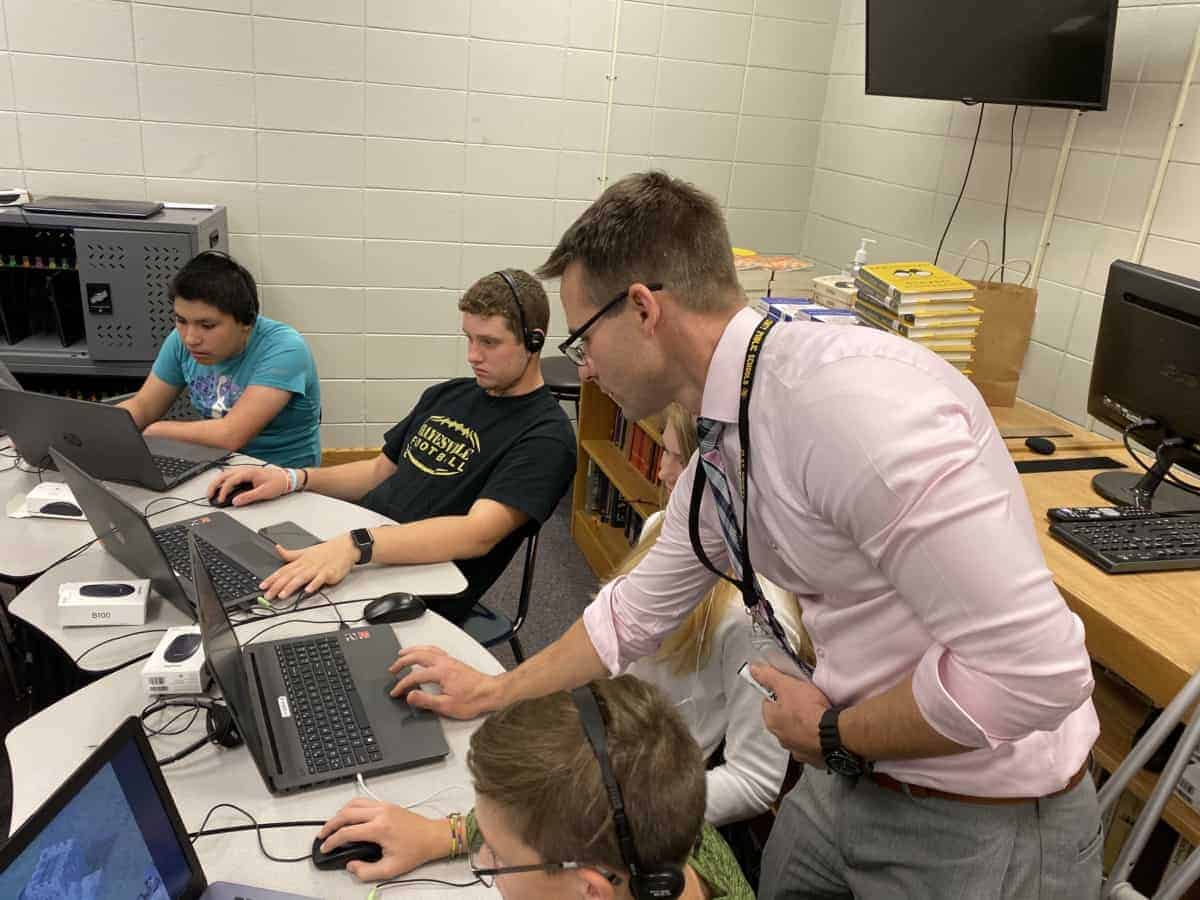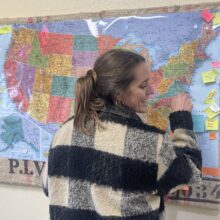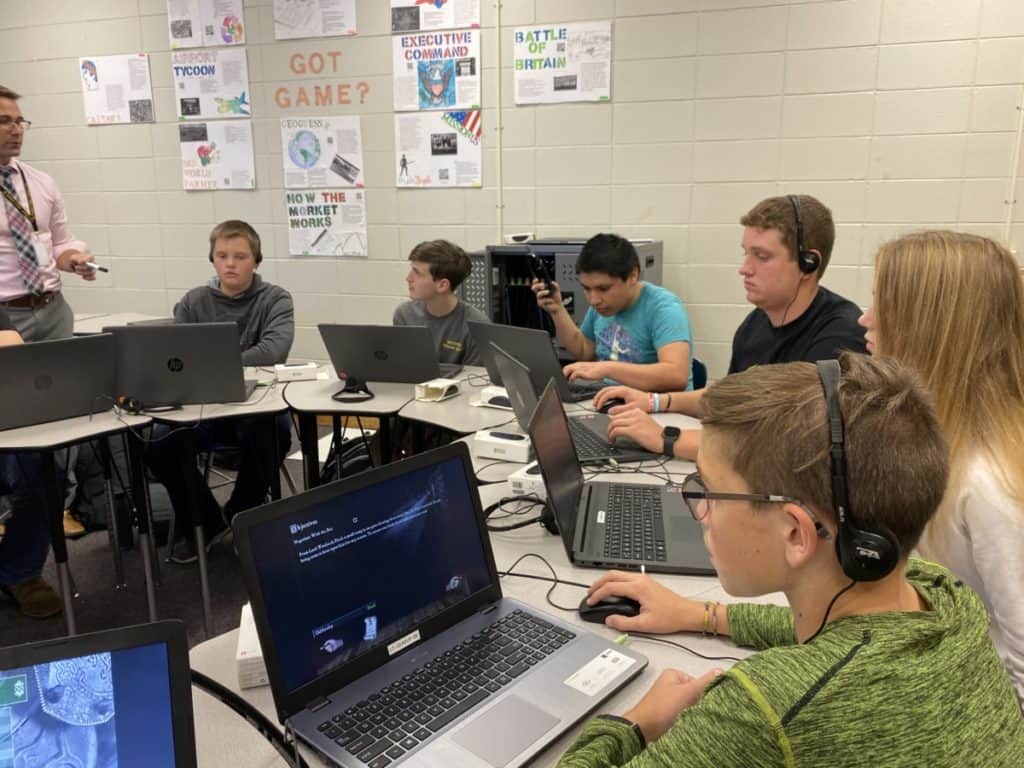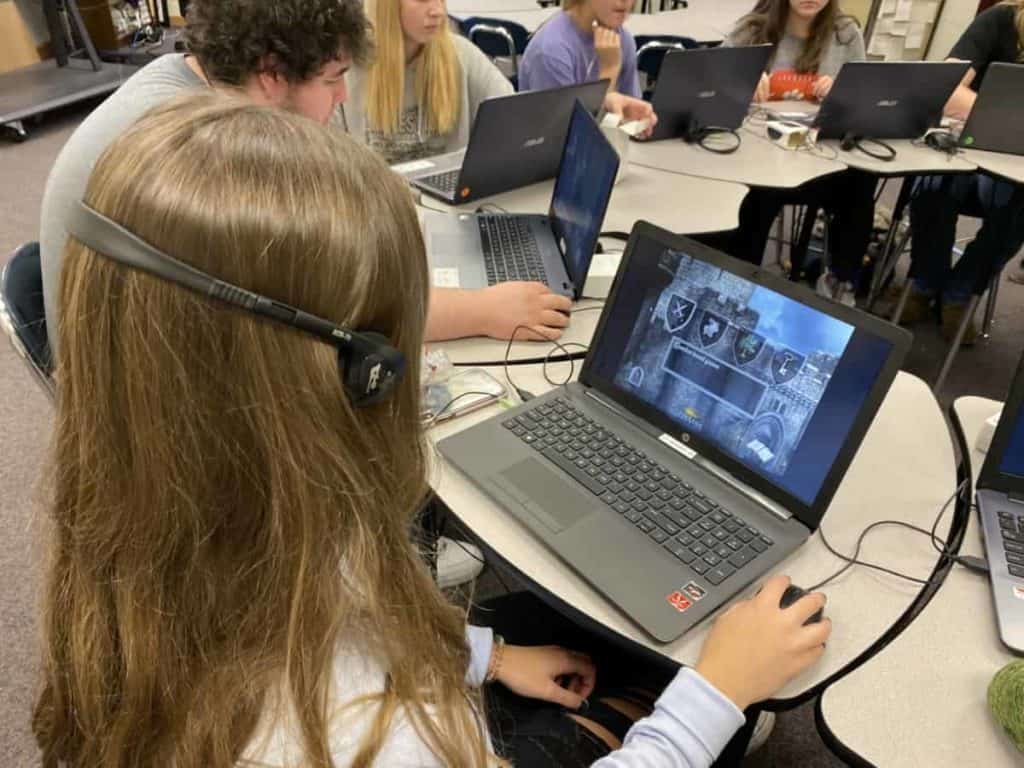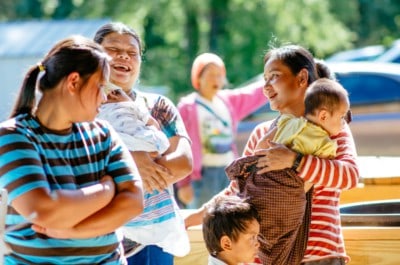In 1988, NASA called on American students to name the newest space shuttle in honor of Christa McAuliffe, a high school teacher who died in the Challenger disaster two years prior. This new orbiter would be the last in the space shuttle program, and its naming power was in the hands of public schools. Students were asked to think of a name inspired by a historical vessel that had launched in the spirit of exploration or research. The national competition included elementary and secondary school classes, and Caesar Campana was in fifth grade.
Campana, currently a teacher at Hayesville High School, recalls that year and his fifth grade teacher fondly. “We went all in,” he said.


Campana’s class set to work, completing projects related to the shuttle naming that incorporated multiple subject areas. He remembers quilting and researching James Cook and his expeditions. He recalls how somehow he turned those expeditions into mathematical learning. He even wrote for the local newspaper, defending the name his class chose: Endeavor.
His class finished in the top three nationally, and all the finalists had picked the same name. The essay that defended their entry was not the winner in the end, but Campana walked away with a much grander lesson.
“That really stayed with me. And to this day, I still try to try to get to that Mount Olympus of instruction. It was a fantastic job by that teacher,” he said.
The impact of this fifth grade experience is reflected in Campana’s philosophy as an educator. He believes “there’s nothing more important in education than being interdisciplinary.” Laughing a little, he explained he has an annoying mantra that all his students associate with their teacher: “It’s all connected.”
Path to teaching
Like other teenagers, Campana didn’t want to follow the path of his parents. They were both career teachers, so naturally, the field of education was an instrumental part of his life growing up. His mom was an elementary school and middle school media specialist, and his dad was an English teacher and a football coach. Campana didn’t feel like a great student, but he had experiences like his fifth grade year that stuck with him.
Enrolling for college at Western Carolina University, he intended on majoring in communications. He was inspired by his classes in the English department and that’s when something shifted for him.
The English lessons didn’t just stick to the class reading — but related to the every day. Some professors found a way to connect the dots and give life to the literature. He felt their investment in him, and he believed he could reciprocate that through the act of teaching.
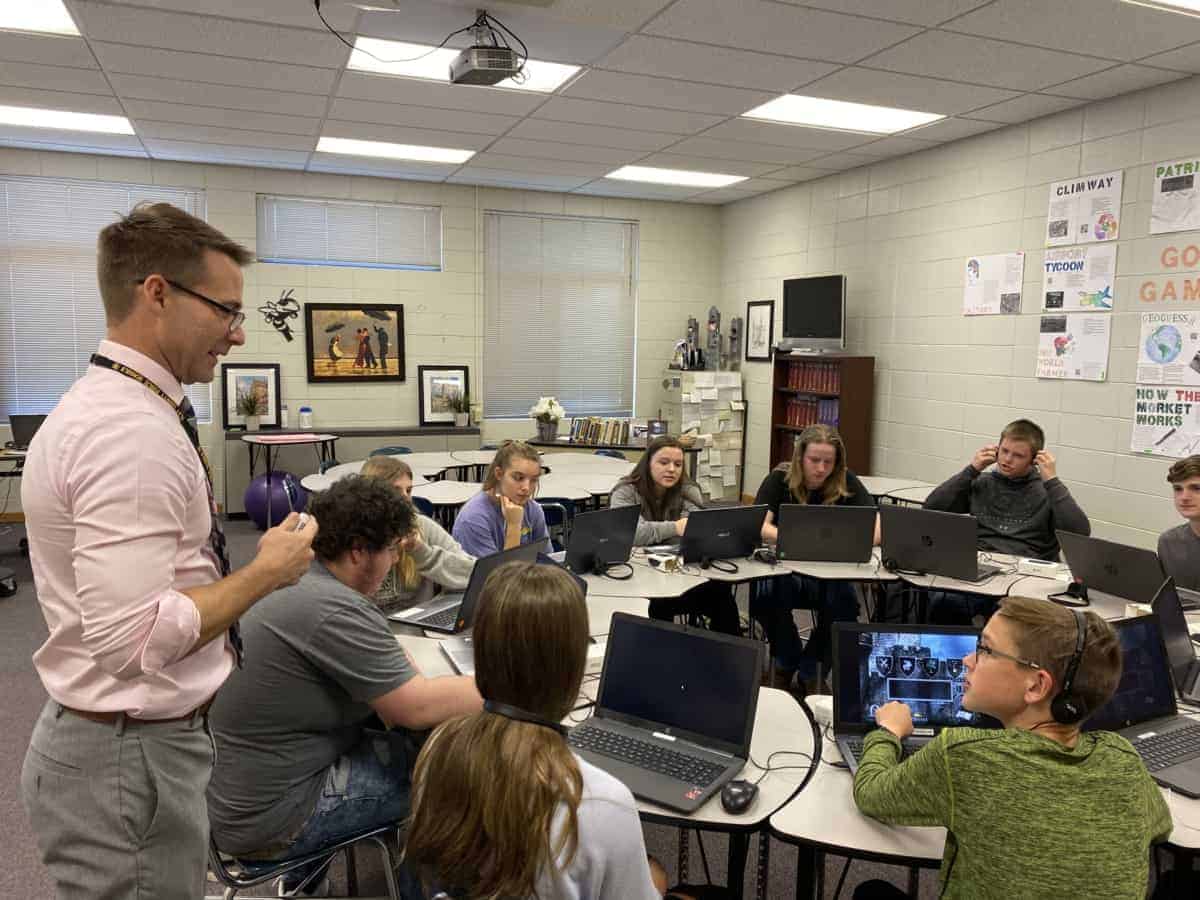

Fearless and flighty
When asked what skills make him an effective teacher, Campana answered with a smile, “I am fearless and flighty.” He explained that the more that he tries to follow a plan, the worse a lesson sometimes seems to go. His students present a daily unknown variable and his strength is adapting to their needs.
Instead of strategically planned lessons, he comes in each day thinking, “These are our goals and what we want to accomplish.” He reads the room, changes to the students’ moods, and tries to give them what they need.
“I can be more of a facilitator if I’m adaptive,” he said. What he wants to accomplish doesn’t change, but his approach does; he says flighty, others may say flexible.
The second skill that makes him an effective teacher? Fearlessness. Being flexible tends to also mean you have to be creative. Campana has created new courses, such as the one he is teaching this semester called games-based learning. This class was born from his students’ disinterest in Canterbury Tales.
He was in the middle of the semester and sensed his students were not clicking with the epic novel, so he presented them with the video game Stronghold. In the game, players essentially have to build, sustain, and manage a civilization in the Middle Ages. After introducing the game, Campana says his students wanted to learn everything they could about the nuns, priests, and the haberdasher in Canterbury Tales. Couple that excitement with a new generation of coders and you’ve got a recipe for success.
“The hook is already baited with games-based learning. The students all want to game, and they all want to compete. And if that can be steered towards an academic avenue, then you’ve got some serious learning going on,” he said.
Through that fearlessness and ability to adapt, Campana found an access point where his students are engaged and most importantly enjoying learning.
Caesar Campana’s advice for teachers:
Empathize with your students.
“Remember that we enjoyed or thrived in this setting enough to return to it as a career, and that just isn’t the case for the great majority of students in our midst. So help them find their own unique voice by genuinely investing in what that voice sounds like, and they will reciprocate.”
Be unique in your approach and don’t let failures knock your self-confidence.
“Big data, standardized curricula, and cookie-cutter programs trend toward inhibiting teacher artistry, individuality and autonomy — which are not only the driving forces for workplace happiness, but also our only bastion against the looming rise in automation.”
Facilitate the molding of students to fit the world beyond the tiny one they currently inhabit in class.
“This requires reading about and contemplating where the world is going. It requires learning about the work of demographers, civil engineers, entrepreneurs, sociologists, researchers, legislators. Essentially, your supreme ‘why’ should always extend beyond the walls of your classroom.”
In Campana’s classroom, he is always cognizant of the world outside. It shows through the way he adjusts his lessons. It’s part of his secret sauce and may be one of the reasons he was named 2019 teacher of the year for the western region of North Carolina.
“The ‘why?’ of learning is never to pass a test, or to pass a class, or to accomplish mastery of minutiae for the sake of having accomplished mastery of minutiae. It should always be about being happier, healthier, wiser contributors to an ever-changing and interdependent society — from family to workforce to civic participation,” he said.
